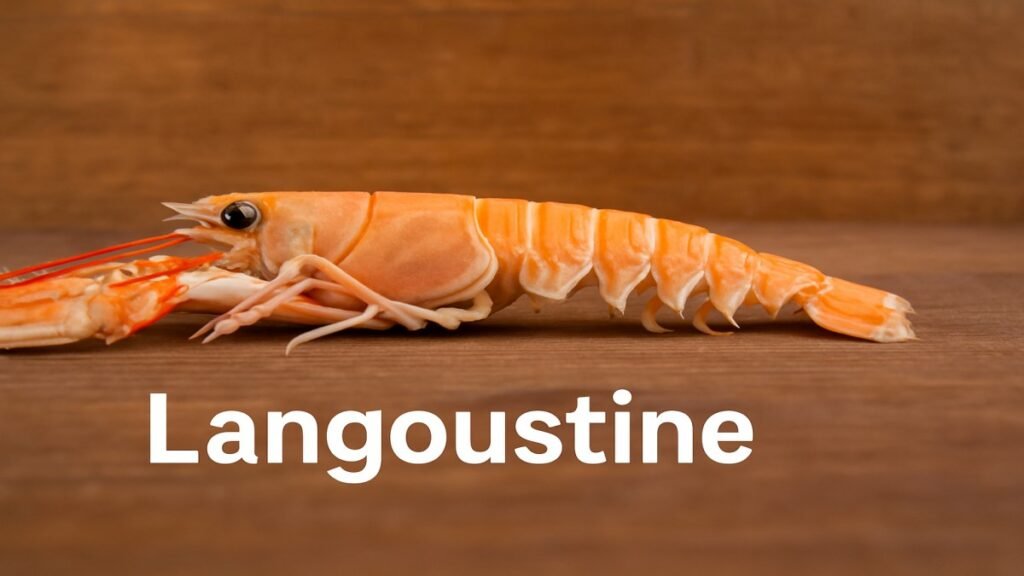Introduction to Langoustine
So, what exactly is this fancy-sounding creature, langoustine? If you’ve ever dined at a high-end seafood restaurant or browsed through a gourmet food magazine, chances are you’ve stumbled upon this delicacy. Langoustine, also known as Norway lobster or Nephrops norvegicus, looks like a small lobster with thin claws and a bright coral shell.
But don’t be fooled by its size—this shellfish punches way above its weight in the flavor department. Mild, sweet, and slightly more delicate than lobster, langoustine is a true treat for seafood lovers.
Langoustine vs Lobster: What’s the Difference?
You might be thinking, “Isn’t this just a tiny lobster?” While they do share similarities, langoustines are slimmer, usually maxing out around 10 inches, and their claws are more elongated. Lobsters are more robust and meaty, but langoustines are prized for their tender, sweet tail meat. It’s like comparing filet mignon to a ribeye—both are amazing, but one’s a bit more refined.
Origins and Habitat
Where Do Langoustines Live?
Langoustines are mostly found in the cold waters of the North Atlantic Ocean, particularly around Scotland, Ireland, Norway, and Iceland. They prefer burrowing in muddy seabeds at depths between 65 to 2,500 feet.
Seasonal Availability
While they can be caught year-round, the prime season for langoustine is from May to October. During this period, their meat is at its most flavorful and abundant.
How They Are Harvested
Langoustines are typically caught using specialized traps or trawls. Traps are more sustainable and preserve the quality of the catch. Once captured, they need to be kept alive or flash-frozen to maintain their quality—these little guys spoil fast!
Nutritional Value of Langoustine
Health Benefits
Langoustine isn’t just delicious—it’s packed with nutrients that make it a healthy seafood choice.
Protein Content
With around 18–20 grams of protein per 100 grams, langoustine is a great option for anyone trying to up their protein intake without loading up on saturated fat.
Vitamins and Minerals
It’s also a solid source of:
- Vitamin B12
- Zinc
- Selenium
- Phosphorus
These nutrients support immune function, metabolism, and brain health.
Langoustine in Culinary Culture
Popular Langoustine Dishes Around the World
From rustic seafood stews in Spain to Italian pasta tossed with garlic and olive oil, langoustine makes an appearance in many Mediterranean cuisines. In France, it’s often served grilled with butter and herbs.
Langoustine in Fine Dining
Langoustine is a darling in the fine dining world. Its sweet flavor and delicate texture make it ideal for gourmet preparation.
Michelin-Starred Chefs and Langoustine
Top chefs like Gordon Ramsay and Alain Ducasse have featured langoustine in iconic dishes. Think langoustine tartare, poached langoustine with saffron foam, or langoustine carpaccio with citrus dressing.
How to Select and Store Langoustine
Fresh vs Frozen Langoustine
Fresh langoustines are a rare find unless you live near the coast. Most of what’s available commercially is flash-frozen to preserve its quality. Look for translucent white tail meat with a firm texture.
Tips for Buying Langoustine at the Market
- Avoid any with a strong ammonia smell.
- Shells should be firm and brightly colored.
- The tail should curl naturally when raw—straight tails mean it’s been dead too long before freezing.
Proper Storage Techniques
Keep frozen langoustine in the coldest part of your freezer. Once thawed, cook within 24 hours for best results. Never refreeze thawed langoustine.
Conclusion
Langoustine might not be a household name, but it’s a shellfish superstar in the culinary world. Whether you’re indulging in a Michelin-starred experience or grilling it at home with butter and herbs, this delicate crustacean is worth the splurge. With its sweet flavor, high nutritional value, and versatility in cooking, langoustine deserves a top spot on your seafood list. Just make sure you’re buying sustainably so future generations can enjoy it too!
FAQs
What’s the best way to cook langoustine?
Grilling with garlic butter or boiling for 2–3 minutes in salted water are both excellent ways to highlight langoustine’s natural flavor.
Can I eat langoustine raw?
Yes, if it’s sushi-grade and very fresh. Langoustine tartare or carpaccio is popular in fine dining, but make sure it’s sourced from a trusted supplier.
Are langoustines expensive?
They can be. Due to their delicate nature and limited availability, langoustines are considered a premium seafood item.
What do langoustines taste like?
They have a sweet, delicate flavor, similar to lobster but more tender. Some say it’s like the lovechild of shrimp and lobster.
How are langoustines different from shrimp?
Langoustines are larger, have claws, and a sweeter, more lobster-like flavor compared to shrimp.








